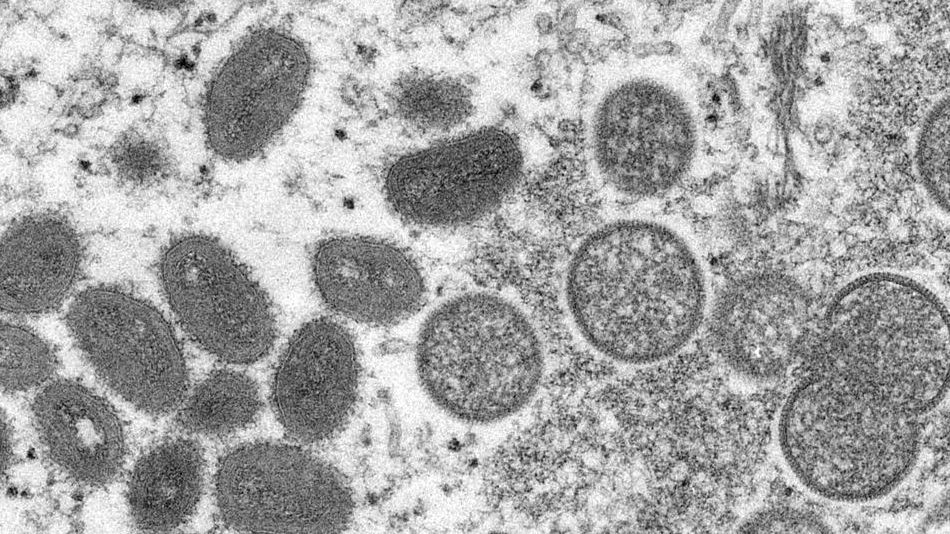The first case of the monkeypox virus in North Carolina was identified by the N.C. Department of Health and Human Services, public health officials said. The case was found in a resident of Haywood County, in western North Carolina, according to the Haywood County Health and Human Services Agency.
What You Need To Know
The N.C. Department of Health and Human Services confirmed a case of monkeypox in a state resident
More than 3,300 cases have been reported around the world, including 156 in the United States
The virus, which causes flu-like symptoms, swelling of lymph nodes and a rash, is spread through skin-to-skin contact, state health officials said
"Monkeypox is a rare but potentially serious, viral illness that typically involves flu-like symptoms, swelling of the lymph nodes and a rash that includes bumps that are initially filled with fluid before scabbing over. Illness could be confused with a sexually transmitted infection like syphilis or herpes, or with varicella zoster virus (chickenpox). Most infections last two to four weeks," according to a news release by N.C. DHHS.
“We are encouraging providers to pay close attention to the clinical presentation of symptoms consistent with monkeypox. If clinicians identify patients with symptoms such as fever, chills and the distinctive vesicular or pustular rash, monkeypox should be considered as a possible diagnosis,” said Haywood County Health Director Sarah Henderson.
Health officials are working to notify people who may have been in contact with the person.
"Monkeypox is typically spread by skin-to-skin contact. The person is currently isolating at home. No further information will be shared about this case to protect the patient’s privacy," the DHHS release said.
More than 3,300 cases of the infection have been discovered in the U.S. and around the world, with about 156 of those in America. No one has died from monkeypox, according to state public health officials.
"The number of monkeypox cases has been growing in the U.S. and globally," said Dr. Zack Moore, state epidemiologist and epidemiology section chief, in the N.C. DHHS news release. "Though this is the first confirmed case in North Carolina, we know there are likely other cases in the state. We are encouraging doctors to consider this in people who have a rash or skin lesion that looks like monkeypox."
People catch the virus through "skin-to-skin contact, having contact with an infectious rash, through body fluids or through respiratory secretions," the N.C. DHHS says.
"While anyone can get monkeypox, in the current outbreak, many of the cases are in men who have sex with men," the N.C. DHHS stated.
Health care officials recommend contacting a doctor or health care provider if you have an unexplained rash or other symptoms.
"Keep the rash covered and avoid sex or being intimate with anyone until you have been checked out. Standard household cleaners and detergents are effective at cleaning environmental surfaces and linens," N.C. DHHS officials advise.
Dr. Cameron Wolfe, associate professor of medicine at Duke University School of Medicine, said in an interview with Spectrum News 1 that the virus is different than COVID-19 in that it's spread by very close contact.
"Those blisters are in fact the thing that is most exquisitely infectious, they are teeming with virus, the skin around the blister is infectious, dead skin that may have peeled off is infectious," he said.
He also clarified that this not a sexually transmitted disease, but it's the close contact during intimacy that can lead to infection.
“It’s not the sex that transmits this, this is just close contact. It’s also our responsibility to be mindful if we’re getting unusual rashes to put our hands up and say 'hey something's going on here, I don’t know what this is, could this be?'
"I don’t think people need to be as concerned as what we should’ve been in March 2020, and that’s OK. I do think we need to have a little of backing off the anxiety level a little, but at the same time, I think if people put their head in the sand, this will continue to transmit.”
Wolfe highlighted a specific group that may be at risk of contracting this disease from close contact: health care workers.
“It’s plausible that if they, unbeknownst to them, touch open lesions, can get the same issues, we’re all vulnerable.”
He also added that if immunosuppressed individuals contract the disease, as with many viruses, the more severe the case can become.



